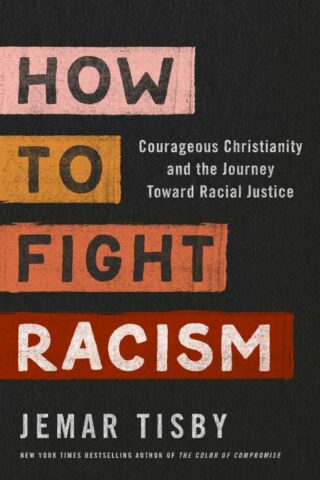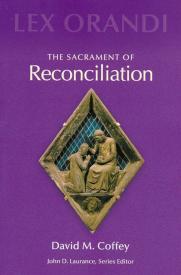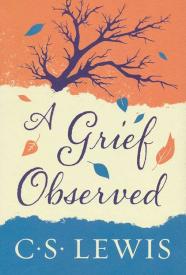Sacrament Of Reconciliation
$29.95
Although it did not come from Christ in the form it has today, it is clear from Scripture that reconciliation was central to the ministry of Christ. In The Sacrament of Reconciliation David Coffey examines the theology of reconciliation and addresses the crisis that the sacrament faces in the present pastoral situation of the Church.
Father Coffey calls on Scripture and tradition, to the magisterium, and to theology in his analysis. However, he also moves beyond these to look at the practice of the Church and to the liturgy as it is regulated, celebrated, and experienced. In doing so, he presents a theology of the sacrament of reconciliation that is truly based on, and inspired by, the liturgy. This theology is molded by two contextual factors: the crisis that the sacrament is currently undergoing in the developed nations of the West and the restrictions imposed by Rome on the “third rite,” the most communal of the three forms of the sacrament.
Since the sacrament of reconciliation exists for the forgiveness of postbaptismal sin, chapter one is devoted to a theology of sin. Here, Father Coffey identifies what the main theological cause is at the heart of the present crisis, namely, a serious and widespread confusion about the nature of sin. Chapter two focuses on the Church’s ministry of reconciliation. This chapter provides both essential knowledge and a response to the widely held view that one does not need to turn to the Church in order to obtain forgiveness from God for sin. Chapter three examines the four parts of the sacrament: contrition, confession, absolution, and the prescribed work of penance. The investigation in this chapter suggests theological limits to possible future reforms of the sacrament. In chapter four Father Coffey offers a detailed examination of the three sacramental rites and the nonsacramental service set down by The Rite of Penance. Finally, in chapter five, Father Coffey offers some predictions about the future of the sacrament, based on his study.
in stock within 3-5 days of online purchase
SKU (ISBN): 9780814625194
ISBN10: 0814625193
David Coffey | Editor: John Laurance
Binding: Trade Paper
Published: October 2001
Lex Orandi
Publisher: Liturgical Press
Print On Demand Product
Related products
-
Grief Observed
$17.99Written by C. S. Lewis with love and humility, this brief but poignant volume was first published in 1961 and courageously encounters the anger and heart-break that followed the death of his wife, an American-born poet, Joy Davidman. Handwritten entries from notebooks that Lewis found in his home capture the doubt and anguish that we all face in times of great loss. He questions his beliefs in this graceful and poignant affirmation of faith in the face of senseless loss.
Add to cart1 in stock
-
Women Of The Bible Speak
$25.99The women of the Bible lived timeless stories–by examining them, we can understand what it means to be a woman of faith.
People unfamiliar with Scripture often assume that women play a small, secondary role in the Bible. But in fact, they were central figures in numerous Biblical tales. It was Queen Esther’s bravery at a vital point in history which saved her entire people. The Bible contains warriors like Jael, judges like Deborah, and prophets like Miriam. The first person to witness Jesus’ resurrection was Mary Magdalene, who promptly became the first Christian evangelist, eager to share the news which would change the world forever.
In The Women of the Bible Speak, Fox News Channel’s Shannon Bream opens up the lives of sixteen of these Biblical women, arranging them into pairs and contrasting their journeys. In pairing their stories, Shannon helps us reflect not only on the meaning of each individual’s life, but on how they relate to each other and to us.
From the shepherdesses of ancient Israel who helped raise the future leaders of the people of God, to the courageous early Christians, the narrative of the Bible offers us many vivid and fascinating female characters. In their lives we can see common struggles to resist bitterness, despair, and pride, and to instead find their true selves in faith, hope, and love. In studying these heroes of the faith, we can find wisdom and warnings for how to better navigate our own faith journeys.
The Women of the Bible Speak outlines the lessons we can take from the valor of Esther, the hope of Hannah, the audacity of Rahab, and the faith of Mary. In broadening each woman’s individual story, Shannon offers us a deeper understanding of each, and wisdom and insights that can transform our own lives today.
Add to cart2 in stock
-
Hollywood Commandments : A Spiritual Guide To Secular Success
$25.99DeVon Franklin, New York Times bestselling author of The Wait and prominent Hollywood producer, reveals that secular and spiritual success are not opposites. To have one, you need the other.
You can be wildly successful without losing your faith. In fact, your secular success will strengthen your faith if you allow it. Too often we believe that success in secular environments contradicts the core principles of faith, but the opposite is true: Your faith was designed to thrive in the secular world and to transform it as a result. You may never experience the true fulfillment you were created for until you pursue the secular ambitions in your heart.
New York Times bestselling author DeVon Franklin knows this to be true. In The Hollywood Commandments, the prominent Hollywood producer and spiritual success coach reveals 10 life-changing lessons picked-up from his over-twenty-year career in the entertainment business. You won’t learn these lessons in the church yet they will help you achieve an amazing life and thriving career that glorifies God. The Hollywood Commandments will help you:
–Identify how to use what makes you unique to propel your career.
–Overcome fear and build the courage to pursue new opportunities waiting for you.
–Gain the confidence to make important life decisions with greater peace and clarity.
–Negotiate the life and career advancement you deserve.No, you don’t have to work in Hollywood for this book to work for you, these “commandments” apply to every walk of life! If you are stuck, looking for the secrets to advance your career, or have a feeling there’s more to life, this book is for you.
Add to cart1 in stock
-
Goodnight Moon (Anniversary)
$18.99SKU (ISBN): 9780060775858ISBN10: 0060775858Margaret Brown | Illustrator: Clement HurdBinding: BoardsPublished: September 2005Publisher: Harper Collins Publishers
Add to cart2 in stock











Reviews
There are no reviews yet.